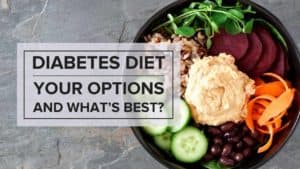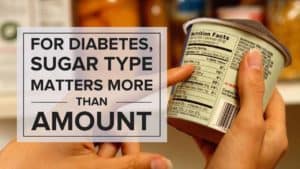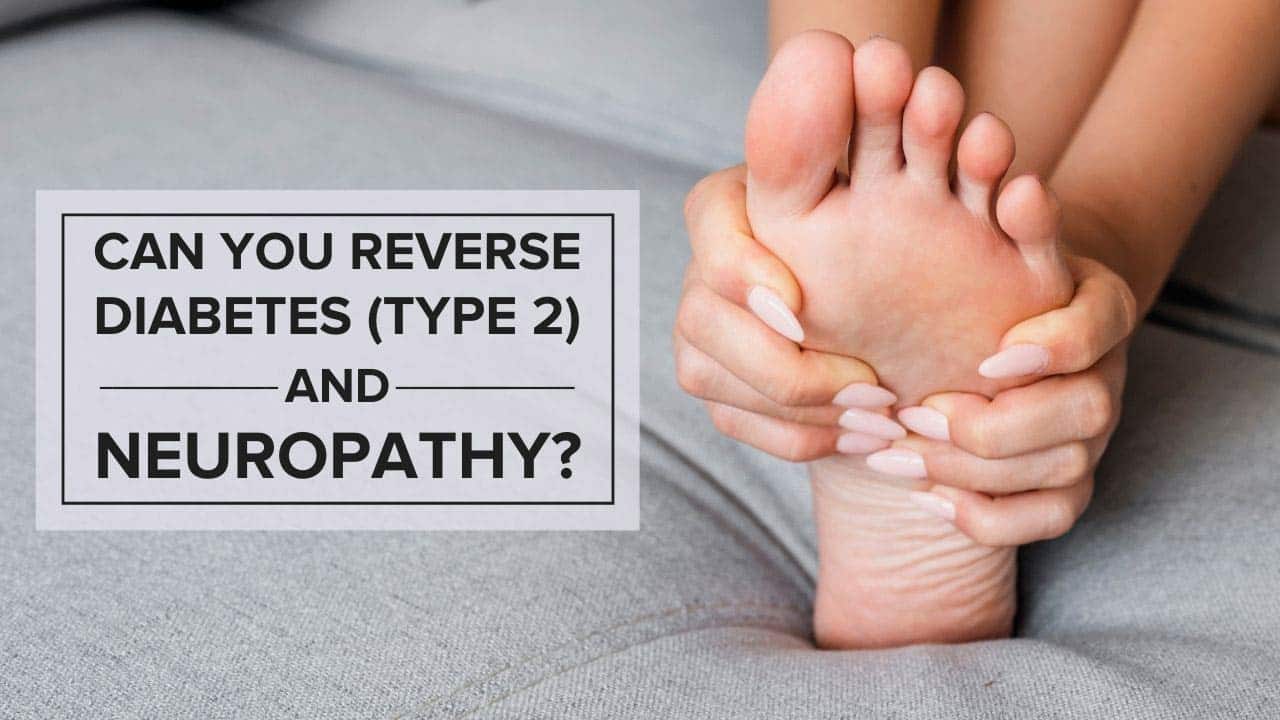
The burning question: can diabetes be reversed? The answer to this is not so straightforward. Type 1 diabetes, which is an autoimmune condition that attacks the insulin-producing beta cells in the pancreas, cannot be reversed. But it can be controlled through lifestyle changes.
However, diabetes type 2 (which accounts for about 90% of people diagnosed with diabetes) can be reversed through changes to your diet, exercise, and other strategies like intermittent fasting.
In this article, we'll explore a few of the differences between these two, and share an inspiring story from the Mastering Diabetes community of reversing type 2 diabetes AND neuropathy!
A Story from Tea
Let’s start with a story from Tea.
Tea loves to cook decadent meals for herself and her husband, but after years of indulging in rich and fatty meals, she was diagnosed with prediabetes in 2007. Then, after 5 more years, she was finally diagnosed with type 2 diabetes in 2012.
With the use of the blood glucose-lowering medication Metformin, Tea was able to bring her A1c down to 7.2.
However, Metformin did nothing to address the uncomfortable symptoms of type 2 diabetes that Tea experienced, including neuropathy, tingling in feet, chronic headaches, gallbladder inflammation, acid reflux, low energy, poor sleep, excess body fat, and brain fog.
Impaired Quality of Life
Tea was not satisfied with the conventional approach to “managing” diabetes, and knew in her heart that there must be a better way to actually reverse type 2 diabetes rather than simply manage the symptoms.
She vividly recalls the day she decided to take her health into her own hands and find a solution for diabetes and peripheral neuropathy. The tingling in her feet had become so uncomfortable that it was negatively affecting her quality of life.
One day, Tea went for a walk and noticed a tingling in her feet – one foot felt like it was asleep, and for the entire duration of her 40-minute walk, her foot never “woke up.”
With every step, Tea had to look at the ground in order to see where her foot actually was. “This definitely is not okay,” she told herself, frustrated that the tingling in her feet was negatively affecting her ability to move her body the way she wanted.
“Walking on your own two feet is not something to be taken for granted,” she said to herself.
Tea's Lifestyle Change
When Tea made the choice in her mind to make a huge lifestyle change in order to reverse type 2 diabetes, she found Mastering Diabetes.
After joining the coaching program in October of 2017, Tea watched all the videos, attended all the coaching sessions, and followed all aspects of the program exactly – with no cheating or cutting corners.
After only 2 weeks of following the program 100%, her headaches, brain fog, acid reflux, neuropathy, and the numbness and tingling in her feet absolutely vanished. That’s when she knew the program was working like wildfire.
As she continued with the program, her health continued to improve dramatically – her lipid panel improved significantly, her blood pressure decreased, and her A1c fell by 1.7%.
In 7 months, Tea has lost 55 pounds, lowered her A1c from 7.2% to 5.5%, decreased her LDL cholesterol from over 400 mg/dL down to 127 mg/dL, lowered her triglycerides from 593 mg/dL to 136 mg/dL, and decreased her blood pressure from 122/80 mmHg to 112/72 mmHg.
Take a look at the changes in Tea’s biomarkers between October 2017 and May 2018 below:
Biomarker | October 2017 | May 2018 |
|---|---|---|
Weight (pounds) | 289 | 234 |
Total Cholesterol (mg/dL) | 251 | 193 |
LDL Cholesterol (mg/dL) | 400+ | 127 |
Triglycerides (mg/dL) | 593 | 136 |
Blood Pressure (mmHg) | 122/80 | 112/72 |
Carbohydrate Intake (g/day) | ~150 | ~225 |
Hemoglobin A1c (%) | 7.2 | 5.5 |
Tea still loves to cook for herself and her husband, but now instead of using lots of meat, eggs, oils, nuts, and avocados in her recipes she makes delicious low-fat, plant-based, whole-food meals.
On weekends, Tea makes large batches of beans, rice, chopped vegetables, oil-free salad dressing. Then on weekdays, she sets aside 15 minutes in the mornings before work to put together her lunch from the ingredients that she had already batch-cooked.
For breakfast, Tea enjoys a big breakfast of different fruits. Some of her favorites include: bananas, oranges, kiwis, apples, grapes, melons, and mangoes.
With absolutely no portion control or calorie counting, Tea never feels hungry after meals, doesn’t need any snacks, and never feels deprived.

And although Tea has a history of being addicted to calorie-dense processed foods, she no longer craves these foods and instead feels satisfied with wholesome treats like homemade popsicles made from blended fruits and other treats.
The best news is that she has reversed type 2 diabetes, reversed neuropathy, and is free of daily Metformin. She can now walk free of tingling in her feet, and feels better than she has in years.
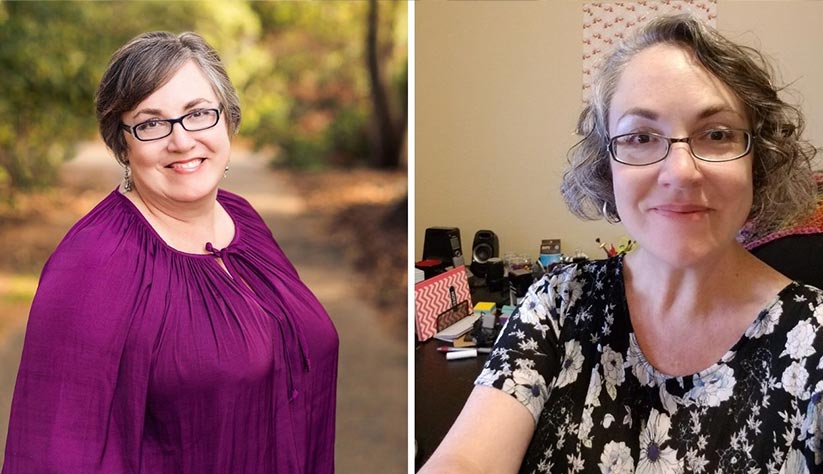
The Burning Question: Can You Reverse Diabetes?
Diabetes is a condition that currently affects an estimated 30 million people in the United States alone and is estimated to affect over 500 million worldwide. The disease process of diabetes typically starts with insulin resistance, which can progress into type 2 diabetes if left untreated or inadequately treated through lifestyle changes.
For these millions of people, in the US alone that accounts for an extra $9,601 dollars of medical care every year on average.
Even ignoring all of the complications, damage to quality of life, and added health risks, it makes sense that people would be pretty serious about reversing diabetes.
So can you?
The Simple Answer -- It Depends
For many people living with type 2 diabetes or even prediabetes the disease can be reversed through changes in diet and lifestyle without medication.
However, for those who have been diagnosed with type 1 diabetes, the autoimmune condition that attacks the beta cells in the pancreas, these changes are more focused on helping improve quality of life now and reduce long-term disease risk into the future.
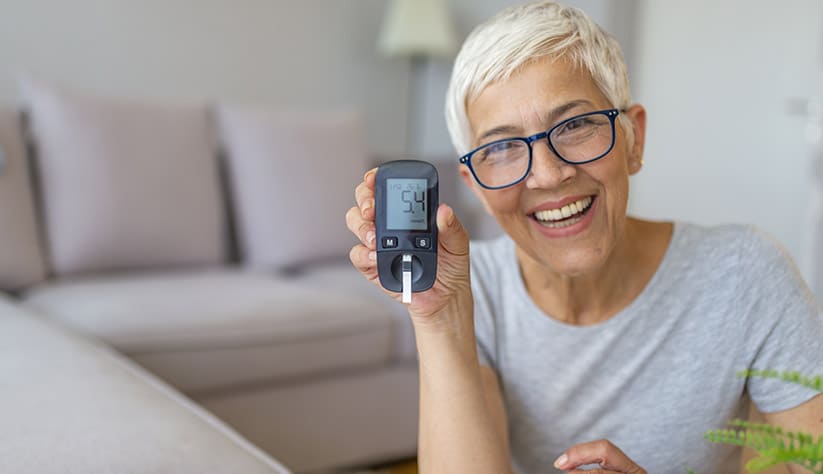
Reversing Type 2 Diabetes
Type 2 diabetes is caused by insulin resistance, which is the buildup of dietary fat in cells that are not meant to store it. As a result, cells start to reject the glucose in your blood while they try to burn the excess fat, leading to a rise in blood sugar levels (what we call diabetes).
Because type 2 diabetes is caused by insulin resistance, reversing type 2 diabetes means treating the underlying cause: restoring cells' ability to respond to insulin.
Managing Type 1 Diabetes
Meanwhile, type 1 diabetes is an auto-immune condition that causes the body to attack beta cells in the pancreas, limiting or stopping their ability to produce insulin.
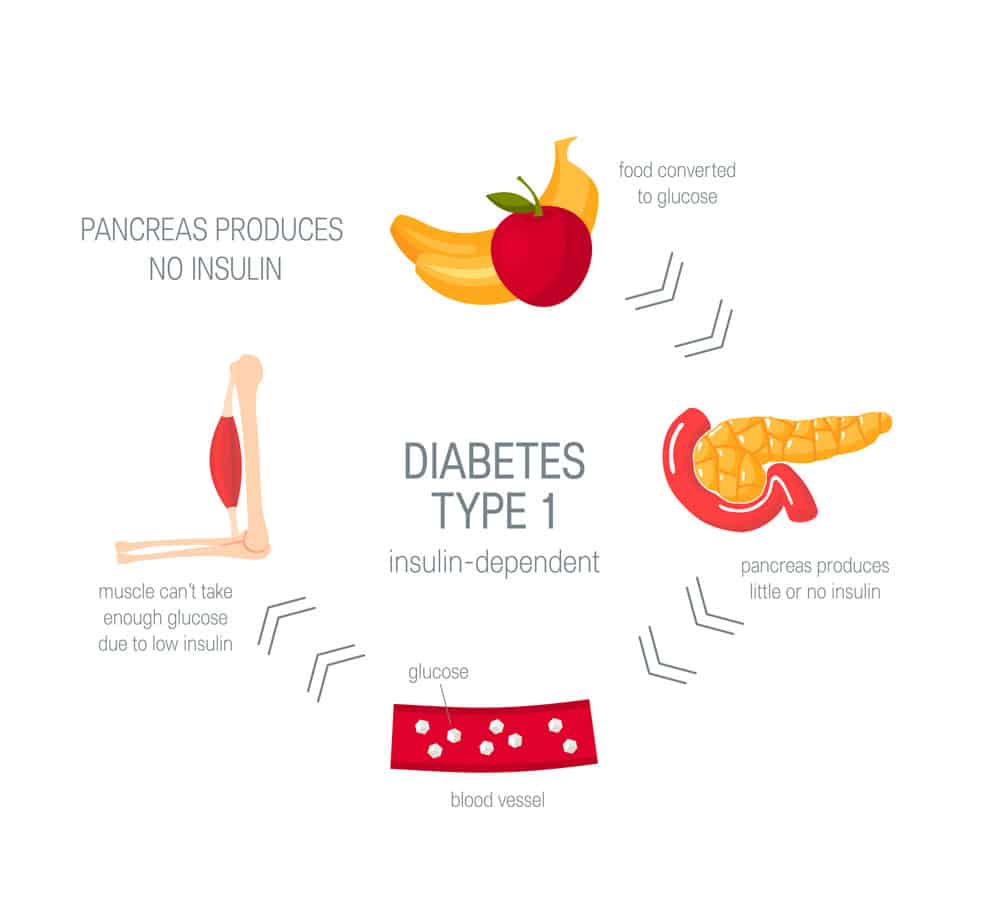
This is a different animal than with type 2 diabetes, because your cells aren't necessarily resistant to insulin. Instead, there's simply no insulin for them to respond to.
And while there is extensive research being done on how to cure type 1 diabetes, most of this research is still in the early stages. In summary, there's no way to reverse type 1 diabetes.
The good news is type 1 diabetes can also be managed through diet and lifestyle changes including intermittent fasting which will help keep blood sugar levels under control while keeping inflammation down (which helps reduce symptoms of neuropathy).
In fact, both of us, the founders at Mastering Diabetes are living with type 1 diabetes!
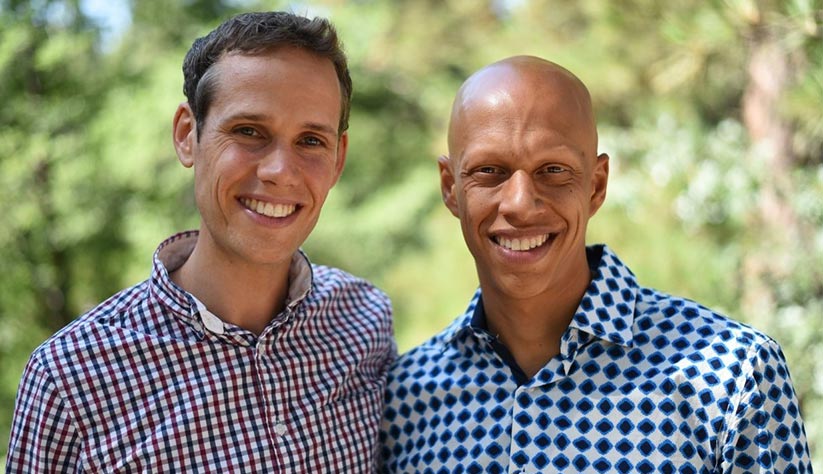
Identifying Diabetes When It Happens
No matter what your form of diabetes you’re living with, this condition is usually identified and treated the same way.
The symptoms are similar -- increased thirst, increased hunger and fatigue.
In addition to these symptoms, high blood sugar can cause a slew of other problems from blurred vision to heart disease.
When these conditions become known, your doctor will test your blood sugar levels, and your body's ability to respond to glucose to determine if you have some form of diabetes.
This first test is called the Oral Glucose Tolerance Test (OGTT), which consists of drinking a sugary drink and seeing how your body responds over the next two hours.
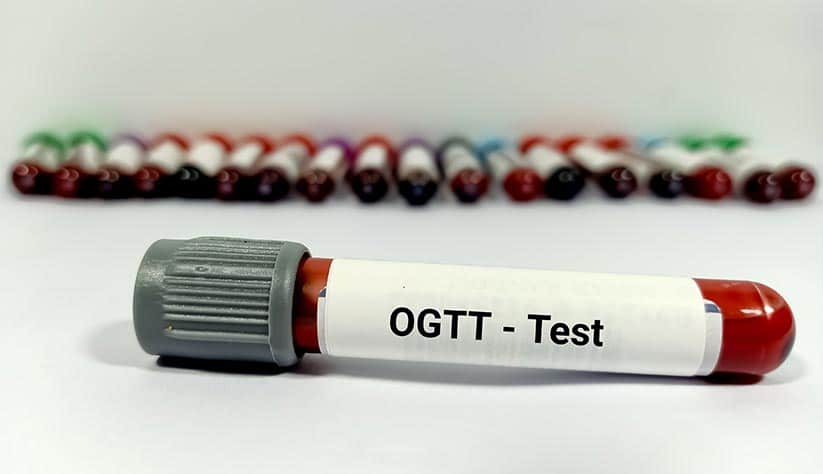
This test is universally considered the defining measure of if diabetes is present.
Then, in order to determine if you have type 1 or type 2 diabetes, you'll undergo something called the C-peptide test, which helps identify if your body's beta cells are producing sufficient insulin levels, or if they've been attacked by an autoimmune response.
The Central Problem in Diabetes: High Blood Sugar
Either way, the central problem with diabetes is high blood sugar levels, which can cause a whole slew of different problems.
For example, constant high blood sugar levels can damage the tiny blood vessels in your eyes, which eventually leads to blindness.
It can also cause nerve problems that lead to numbness and pain, especially when it comes in contact with nerves in your feet and hands (like neuropathy).
High blood sugar -- even if you don't have diabetes -- can also lead to heart disease, especially if you have other risk factors.
And in extreme cases -- called a diabetic crisis -- your blood sugar can get so high that you slip into a coma and die if it's not treated immediately.
So Treating Diabetes Is A Serious Issue
Obviously, if you've been diagnosed with diabetes, it's a serious issue and one that requires immediate attention. After all, you don't want to risk serious complications, and you don't want to live with expensive chronic symptoms that are just going to get worse over time.
But there is a very clear method to taking your life back from diabetes, and it starts with reversing insulin resistance.
The Central Cause of Diabetes Complications: Insulin Resistance
As we mentioned above, insulin resistance is when your body doesn't respond to insulin properly, which leads to chronically high blood sugar levels.
This can cause problems whether you're living with type 1 diabetes or type 2 diabetes.
How Insulin Resistance Is a Threat -- Type 1 Diabetes
In type 1 diabetes, your body already has a hard time dealing with the fact that it can't produce sufficient quantities of insulin, requiring you to inject insulin to make sure that your blood sugar levels and remain in a healthy range.
Insulin resistance makes this even harder. If you have insulin resistance, you have to not only inject insulin to compensate for abnormal insulin production, but then you also have to inject more to compensate for the fact that your cells are not insulin sensitive.
This is called "Double Diabetes" and is a very costly, exhausting, and dangerous condition.
How Insulin Resistance Is a Threat -- Type 2 Diabetes
If you've got type 2 diabetes, the threat of insulin resistance is not only the underlying cause of your condition, it's also a ticking clock to a point where diabetes may not be reversible.
If your body is forced to overproduce insulin in response to insulin resistance for long enough, it can eventually lose the ability to produce insulin at all. This happens because the beta cell groups in your pancreas become so strained that they eventually die, leaving you with a condition similar to type 1 diabetes AND with existing insulin resistance.
All good reasons to reverse this condition!
How Reversing Insulin Resistance Helps for Both
However, we wouldn't lay out the problem if we didn't have a solution, and we do!
Reversing Insulin Resistance for Type 1 -- Lifestyle
The benefits of insulin sensitivity (the opposite of insulin resistance) are very clear for people with type 1 diabetes.
You need less insulin injected each day. You have better blood glucose control. You won't need medication. You'll have more energy. You'll experience healthy weight loss, and need to spend less money on diabetes care.
In all, it just makes your life easier and less stressful.
Reversing Insulin Resistance for Type 2 -- Reversing Diabetes!
As for people with type 2 diabetes, the changes are even more drastic! Because if you have type 2 diabetes, and you reverse insulin resistance, then guess what-- you've succeeded at reversing type 2 diabetes!
It really is that simple, and this is why we've tried to drill this over and over again:
If you reverse insulin resistance early enough, you reverse type 2 diabetes.
The Key Steps to Reverse Type 2 Diabetes and Thrive with Type 1
The Mastering Diabetes Method has come together from decades of research and lived experience, and has been proven with thousands of people (with more still to come)!
This simple (though not always easy) path to reverse type 2 diabetes and go into diabetes remission (or thrive with type 1) requires four key pillars.
A Low-Fat, Plant-Based, Whole Food Diet
The first and most important step in blood glucose control and insulin sensitivity is a low-fat, plant-based, whole-food diet.
That's a lot to keep track of at first, we know, but the results of this form of healthy eating are truly impressive.
Here's why we recommend this diet to reverse type 2 diabetes:
Intermittent Fasting
Intermittent fasting is another key part of our recommended diabetes care strategy to take control of type 1 and reverse type 2 diabetes.
As it turns out, our bodies are historically used to long periods of calorie restriction, and have an automatic process called autophagy in which your cells turn to damaged cells, junk proteins, and -- you guessed it -- fat stores for energy.
Combined with the other pillars, this means that your cells are spending big chunks of the day or the week to burn excess fat, and then are itching to go and ready when your blood glucose levels rise again (like during eating).
We call intermittent fasting our way to supercharge diabetes reversal, because combined with the other two strategies, it can yield some truly impressive results.
Daily Movement
Another part of reversing type 2 diabetes is daily movement and exercise.
The benefits of exercise for weight loss, blood sugar control, and diabetes care are extensive and well documented, so it makes sense we'd recommend them for diabetes reversal.
But our favorite part is the interaction that happens between your diet and exercise.
When you exercise more, your cells produce more mitochondria, which in turn demand more energy. These hungry new powerhouses help keep that high blood sugar down, and keep burning all that store fat even when you're not exercising.
This leads to you losing weight, having better blood glucose control, and feeling great and energetic -- which just makes it more fun to exercise.
And when it's more fun to exercise... well, you see how the cycle continues!
Daily Decision Trees
And the final strategy we recommend as you walk the road towards diabetes remission (or at least better control of your blood glucose) is decision trees.
Decision trees are simply the process of taking notes of all the decisions that you make throughout the day and tracking how they affect your blood glucose.
The result is a very conscious form of self diabetes care and one that will help you track (and celebrate!) your progress along the way.
Addressing Some Myths and Alternatives
Now we also wouldn't be doing our due diligence as experts on diabetes reversal if we didn't address some of the other recommended strategies for diabetes remission and how they can (or can't) help you.
Does Losing Weight Help Diabetes?
In almost all cases, yes! Weight loss -- or even just weight maintenance -- is key to blood glucose control and helps you feel better.
This is because weight loss almost always comes in the form of body fat burning, which is a huge part of our recommended strategies of diabetes care.
The only time it doesn't help diabetes remission is when weight loss comes through unhealthy methods, like dangerous levels of fasting or extreme weight loss drugs. So always make sure that losing weight isn't coming at the expense of a healthy diet and lifestyle.
A Low Carbohydrate Diet?
This is a BIG question. Many people recommend a low carbohydrate diet (which by definition is a high fat diet), for type 2 diabetes reversal. And here's why this is the worst idea possible.
A low carbohydrate diet like keto can provide weight loss. In the short term. It can even offer initially better blood glucose levels because you're not getting much glucose into your body. Again, this is in the short term.
But over the long term, flooding your body with a high-fat diet (which, again, a low-carbohydrate diet is a high-fat diet) can be disastrous for your long-term health.
Because you're skyrocketing your insulin resistance, and basically turning your diabetes into a ticking time bomb.
Because the moment you eat any more glucose, all of that effort towards "diabetes reversal" will have actually been even worse for you!
So while a low carbohydrate diet (read, high-fat diet) can seem tempting (and tasty), you'll likely pay for it in the long term.
Medication?
The simple truth of diabetes is that it's characterized by high blood glucose. So if, like in type 1 diabetes, your pancreas and the beta cell groups inside can't produce insulin or it just doesn't work as well, you have to give yourself the insulin it would be releasing for your cells naturally.
As for type 2 diabetes, we definitely recommend following the medical advice, diagnosis, and treatment plan of your doctor. If this means supplemental insulin or oral medication, it's often important to make sure you keep a healthy blood sugar level.
Our goal is actually to work within that treatment plan, and help you reduce your medication needs until you've reached a point of diabetes reversal where you don't need medication any more!
Natural Supplements?
In addition to over-the-counter medications, there are a number of natural supplements and vitamins that can improve your diabetes remission rate.
However, this is another case where you need to follow the advice of your doctor.
For example, there are well-proven and well-tested blood sugar medicinal plants like amla that operate within the nutrient-dense, whole-food plan we recommend. But taking random, untested herbal supplements is never a good idea without guidance from your doctor.
Bariatric Surgery and Gastric Bypass?
This is the last, most extreme medical procedure people tend to use to treat diabetes.
Bariatric surgery (like gastric bypass) is a very effective, if invasive treatment for type two diabetes.
This is because bariatric surgery changes how your body absorbs and uses nutrients from food. It literally shuts off some parts of your stomach and reroutes your digestive system entirely.
And when it comes to diabetes, this is a very effective treatment because so much type two diabetes is linked with obesity in the first place.
However, there's a big, big asterisk to gastric bypass and bariatric surgery.
First, there are potential side effects and complications from bariatric surgery that can range from mild discomfort to life-threatening emergencies.
And second, if you don't change the habits that lead to your bariatric surgery and gastric bypass in the first place, you may end up in the same position years down the line.
When it comes to such a big piece of medical advice, diagnosis, or treatment like this, there's no way we can make a healthy recommendation about when or if to take this procedure.
We can only recommend trying to use the aforementioned strategies to reverse insulin resistance first, and only use bariatric surgery as a last resort.
Get the Clarity and the Guarantee
Diabetes can be a scary diagnosis, and the road to diabetes mastery can be even scarier if you don't know where to start.
Luckily, we've created a program that shows you exactly what steps are necessary for living without diabetes controlling your life, and we're here to help.
Our diabetes educators are all experts in diabetes and how it relates to nutrition, and have decades of experience helping people just like you overcoming insulin resistance through diet and lifestyle.
There's a reason we have such a body of people who have already experienced their "A1c Miracle", along with impressive weight loss, better insulin sensitivity, a better lifestyle, and reversing diabetes.
Will you be the next success story?
Lower Your A1c and Get to Your Ideal Body Weight ... Guaranteed
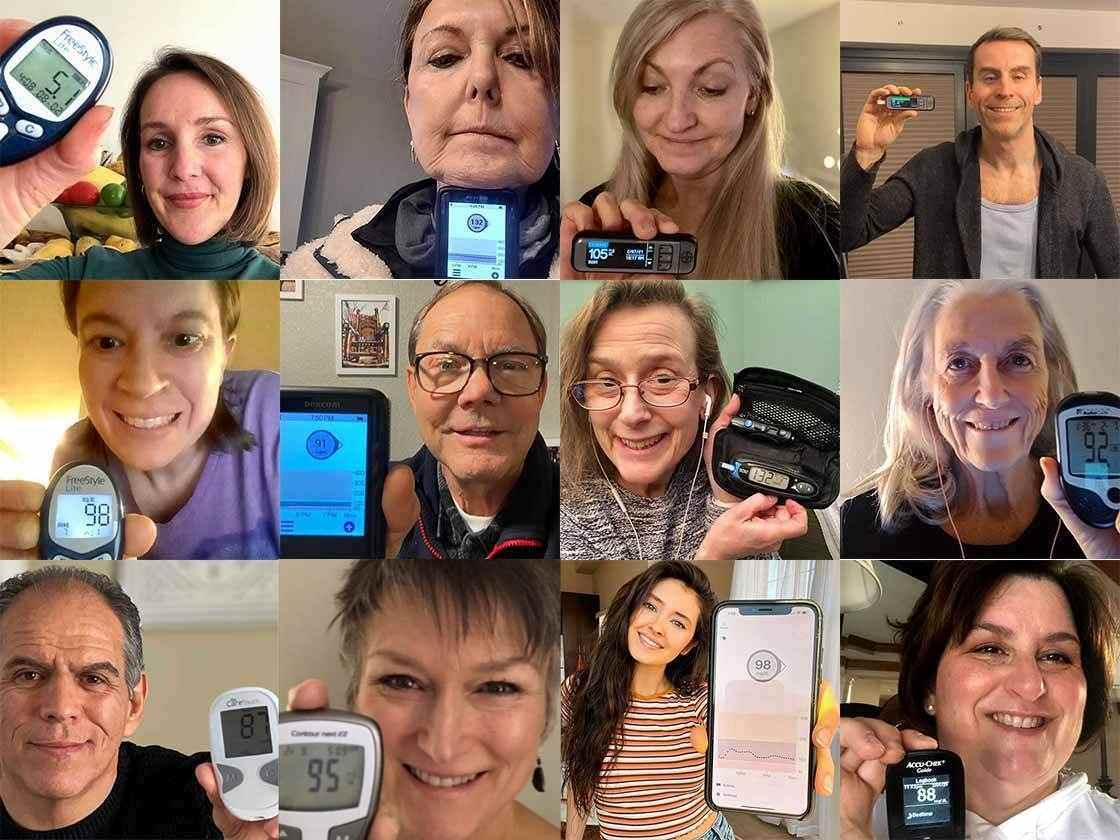
Your results are guaranteed. Join more than 10,000 ecstatic members today
Personalized coaching puts you in immediate control of your diabetes health, helps you gain energy, improves your quality of life, and reduces or eliminates your meds.


